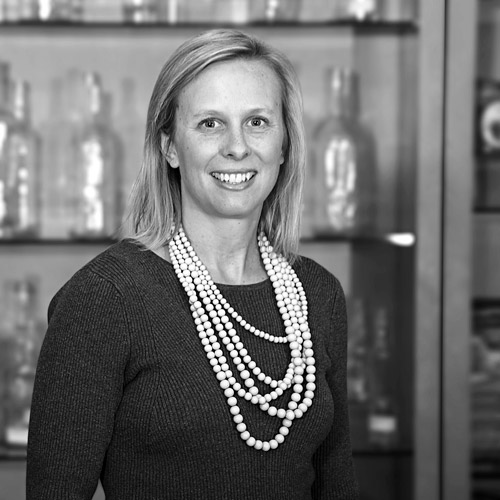“In all honesty, a company is not the product—it’s the people,” Rose Rogers, vice president and chief human resources officer for Ducommun Inc., notes. Ducommun is a global provider of manufacturing and engineering services and electronic, engineered, and structural solutions for the aerospace, defense, industrial, natural resources, and medical markets. “The product meets the expectation, but leadership is the differentiator. That’s where you are able to exceed expectations.”
Nowhere is this more evident than in Rogers’s work in positioning human resources as a partner in the company’s supply chain. Founded in 1849, Ducommun is the oldest company in California. Today, it builds products that go into the construction of other products, such as airplanes. “Any plane you have ever flown on, we did some of its structural components or electronics components,” Rogers says. That work puts Ducommun in the middle of some complex supply chains. Its electronics division, for example, once had more than 5,000 suppliers. That number is now less than fifty, the result of consolidated buys and partnering with providers. Human resources worked with operations management to define the restructure through innovative organizational development practices in order to find and train the right people to bring that partnership to life.
“We spent all of last year hiring and developing our internal people who understood commodities buying. We developed people we had and brought in people we didn’t have,” Rogers explains. The results, she says, are improved on-time delivery, production, and profits. “Our customers now see our supply chain strategy and can trust us to deliver on it. It’s a win-win for everyone.”
Rogers started her business career as a buyer in fashion retail, but soon transitioned to human resources. “I recognized that I had strong productivity when oriented toward people,” she says. “I considered myself a businessperson, but I recognized that people processes make a huge impact.” She began her HR career thirty years ago with Target. “I started at the bottom, which ended up being important,” Rogers says. “That fundamental training at an early age was one of the most important things to happen, because it gave me a foundation to work from.”
Rogers then moved to a computer software company, followed by a marine supplier with international contracts. It was there where she learned how to handle variables such as visas and work transfers. At the same time, Rogers traveled around the world to visit the company’s 980 locations. “I really got a ton of growth and experience,” she explains. Her next stop, at a graphics technology company, came at a time in which the industry was undergoing massive consolidation. She was involved in twenty acquisitions and was promoted to a senior vice president position. “In a middle VP role, you execute a lot of strategy, but at the next level, you get the opportunity to be at the beginning of overall company strategy,” she says.
When that company was acquired, she says she stumbled upon Ducommun and took a position as VP for one of its subsidiaries. “It was an opportunity to learn a new industry,” she says. Two years later, in 2008, Rogers was promoted to corporate VP and officer. Her most important task, she says, is to help the company build the human capital infrastructure to be aligned with every single business line. That process, which the company calls its Human Resources Review, includes looking into the organization where its own people are being developed, and aligning them to evolving corporate strategy in order to fill potential personnel gaps.
“It requires visibility as to where we will be in one to five years, based on corporate strategy,” she says. It may mean identifying employees who will retire soon and will need to be replaced, finding candidates for its high-potential training program to help employees build their careers, fostering a mentoring program, or recruiting new talent on colleges and through internship programs. “We spend a lot of time on colleges to continue bringing in a highly talented, but not yet highly skilled, workforce,” she says with a laugh. “We can then turn them into highly skilled individuals.”
She believes that effective leadership depends on effective communication. Leadership is meant to inspire people, she says, and to do that requires communication both upwards and downwards. People need to know what their goals are, what is expected of them, and why decisions are being made, she contends. “We believe that using both the heart and the mind in decision-making is critical,” she says. “We believe in purpose-driven performance and transparency, so people know what is happening and why.” That requires high visibility among senior leaders. “I spend a lot of time in the plants to help develop middle managers,” she says. “It is very tactical. As a leader, the key point is to walk the talk.”
The company’s success methodology, which it calls the Ducommun Way, focuses on “finding better ways of serving our customers through a combined focus on operational excellence, organizational development, and profitable growth.” That includes finding innovative solutions and new ways of growing—for both Ducommun’s customers and its employees. “In the end, it’s about results,” Rogers says. “We use all our decisions to drive the results we need.”
Developing Winners on the Diamond
When she’s not developing a winning team at Ducommun, Rose Rogers helps develop a winning girls’ softball team as its pitching coach. She is most proud of the fact that more than eighty of her athletes have earned college scholarships—many of them the first in their family to attend college—to prestigious institutions such as Stanford, Brown, and the US Military Academy.
Along with improving their softball skills, which have earned the team high national rankings, she teaches them how to be leaders. “You have to win in sports and in life,” she says. “And if you develop kids and prepare them to win, teach them the mental side of the game, you know what? They win.”

